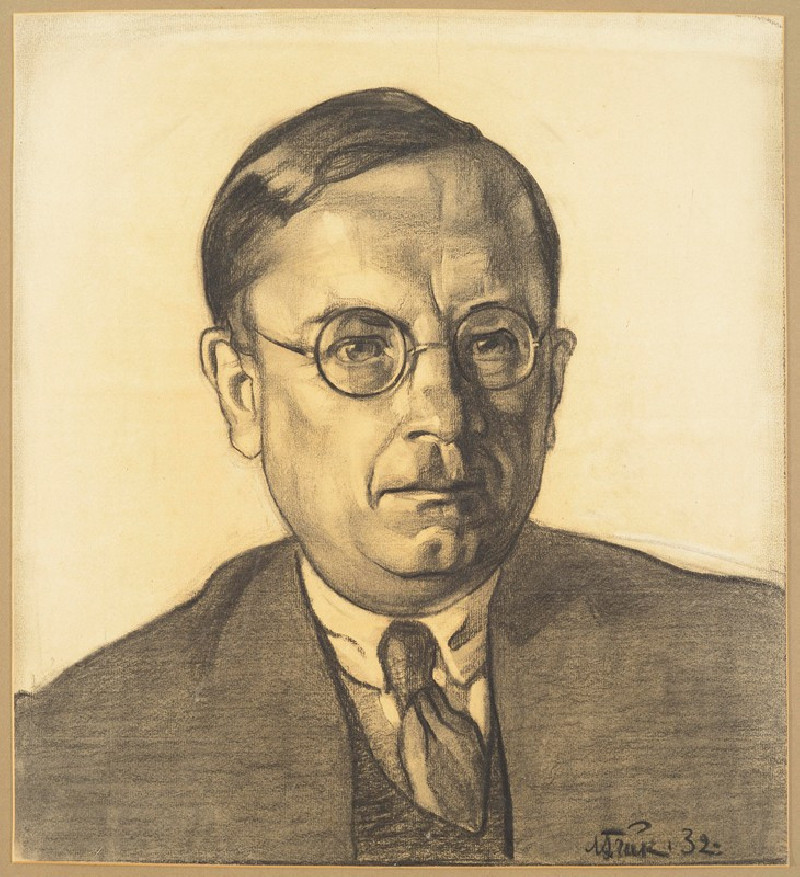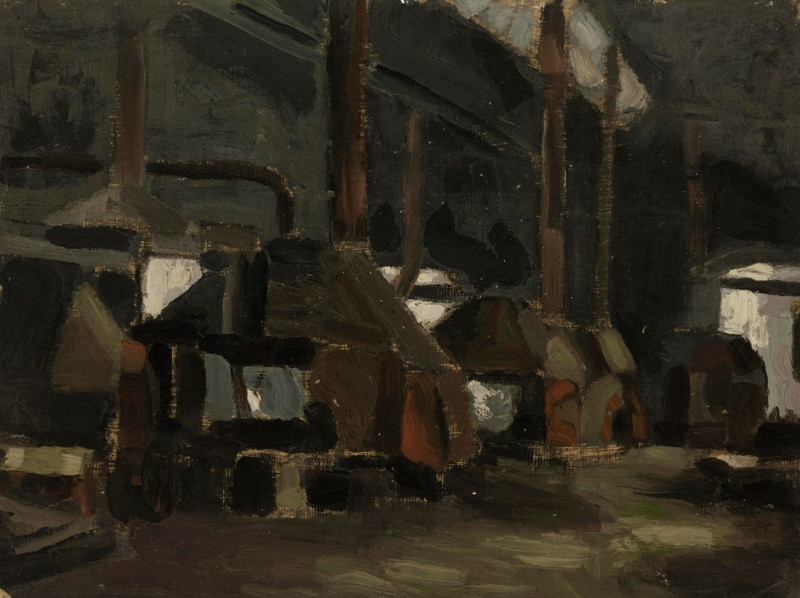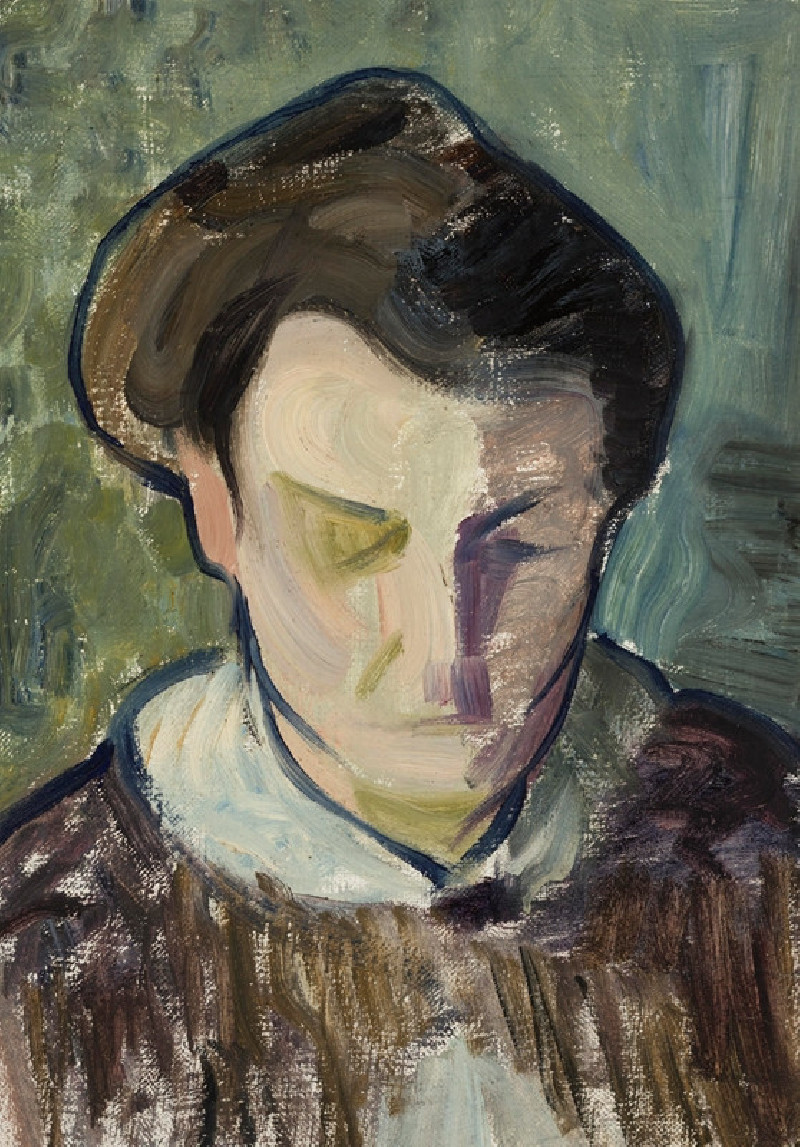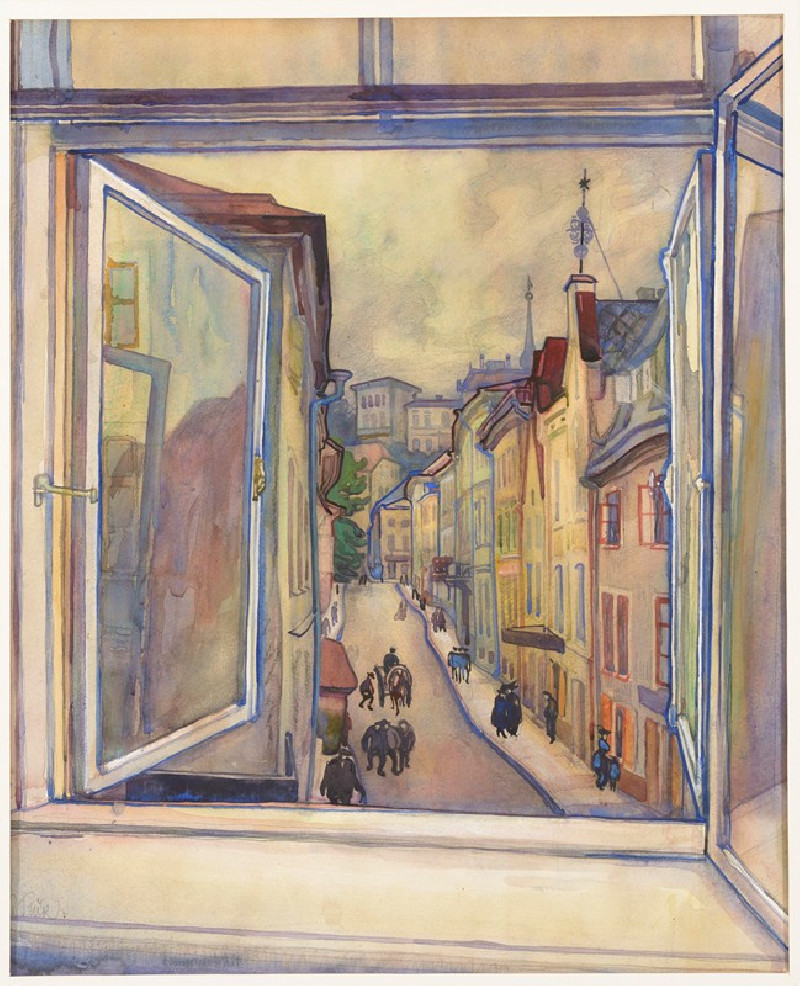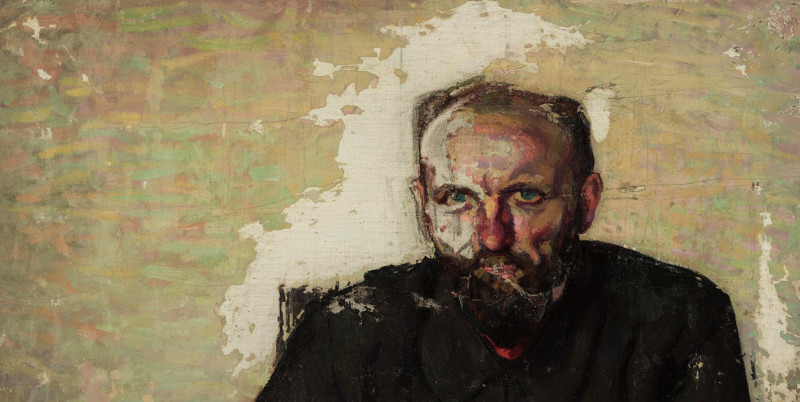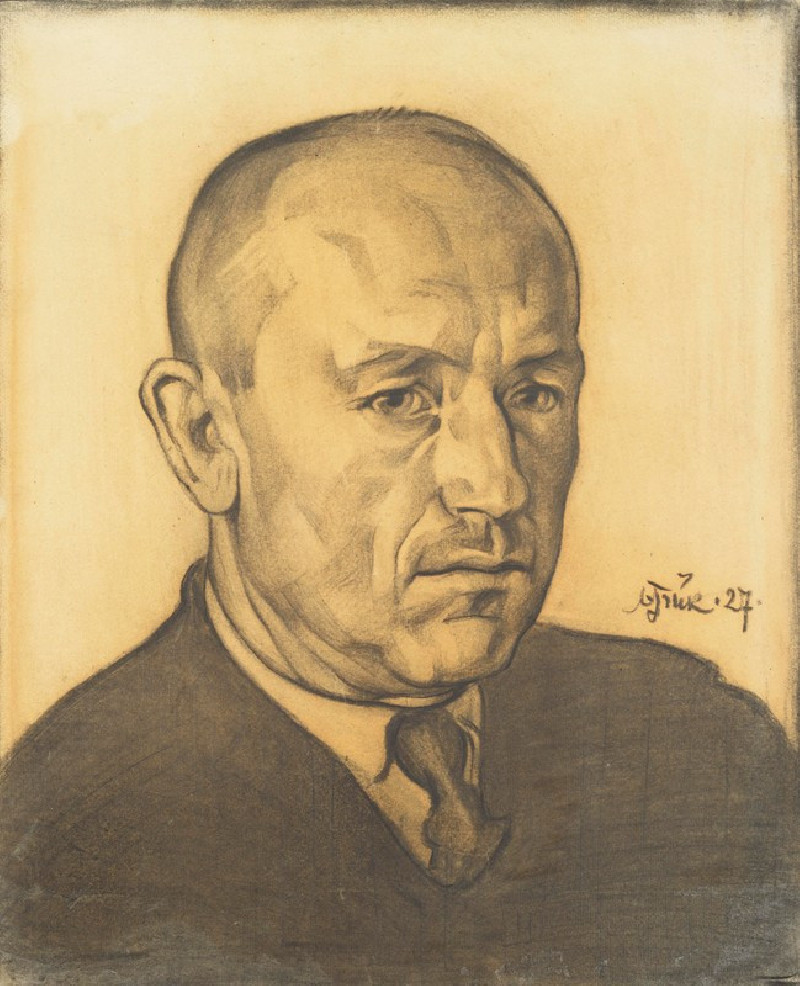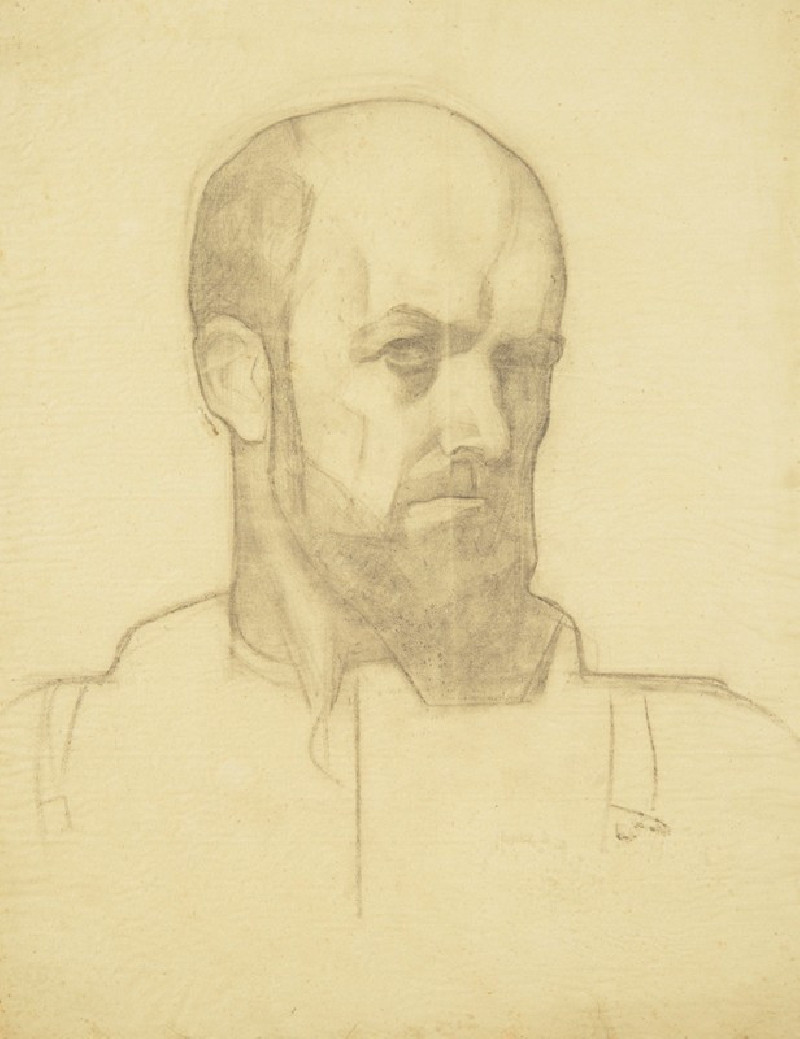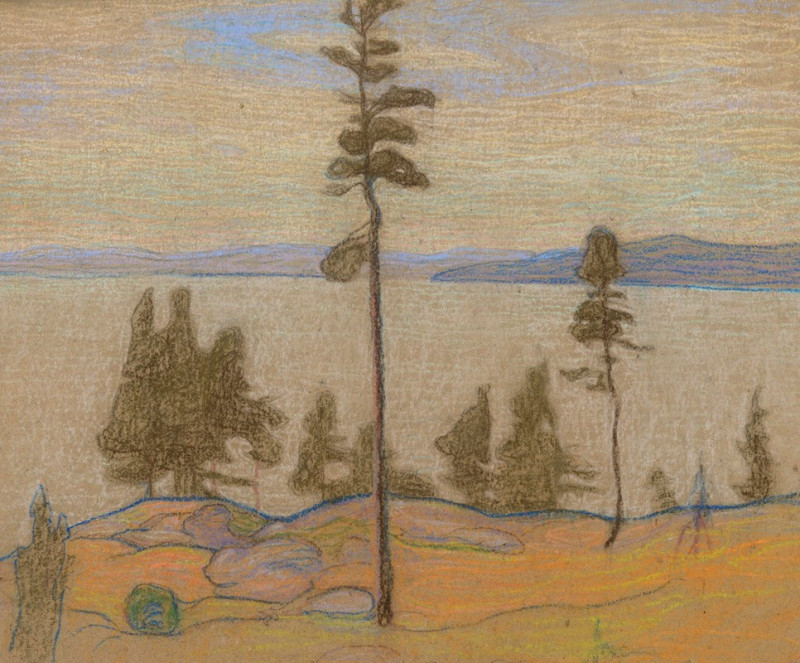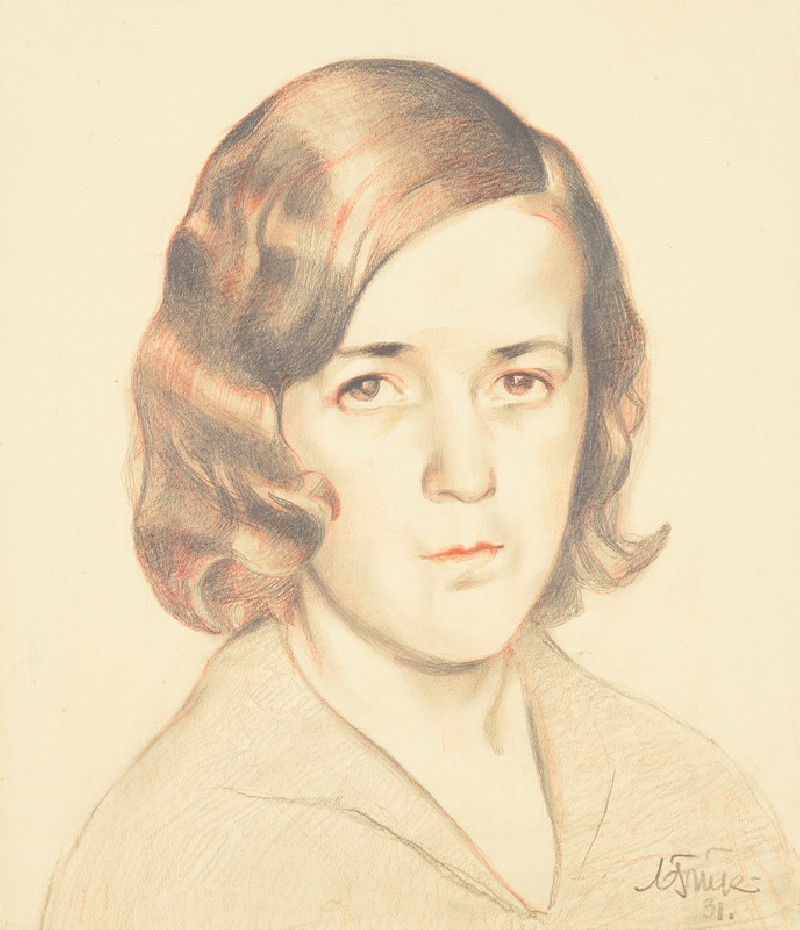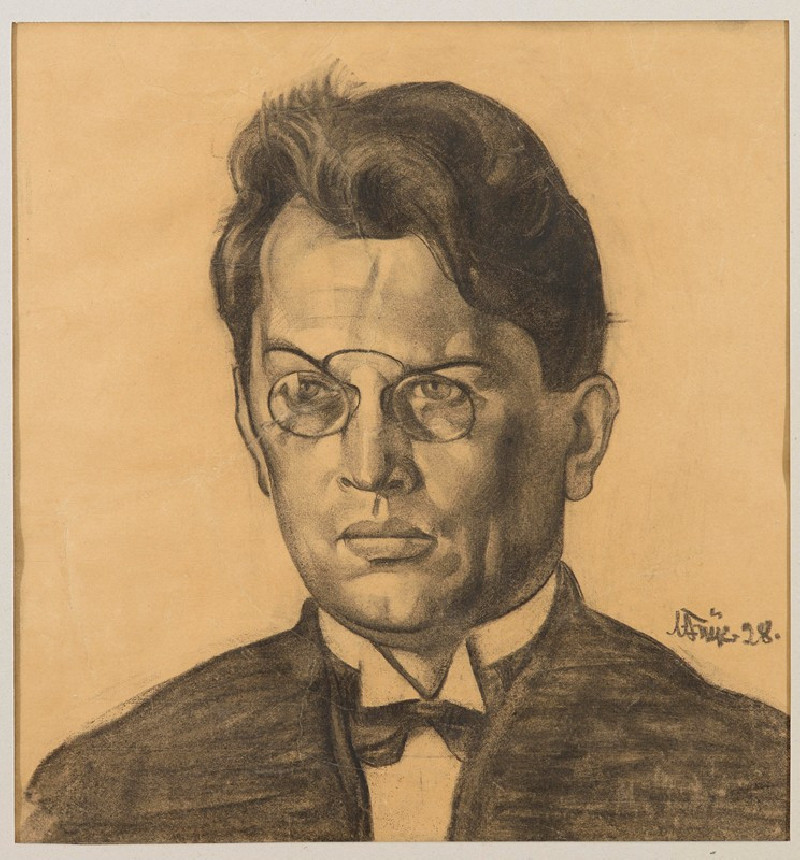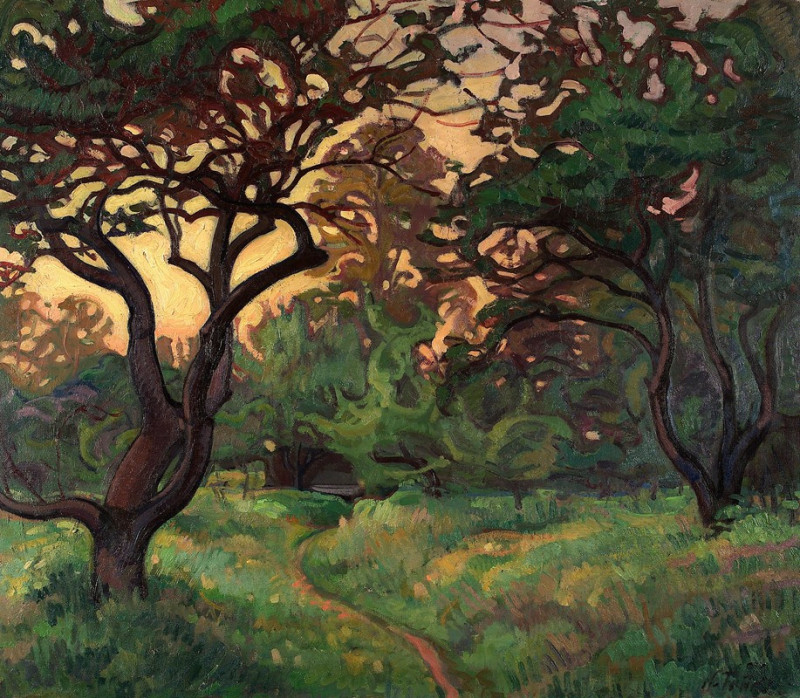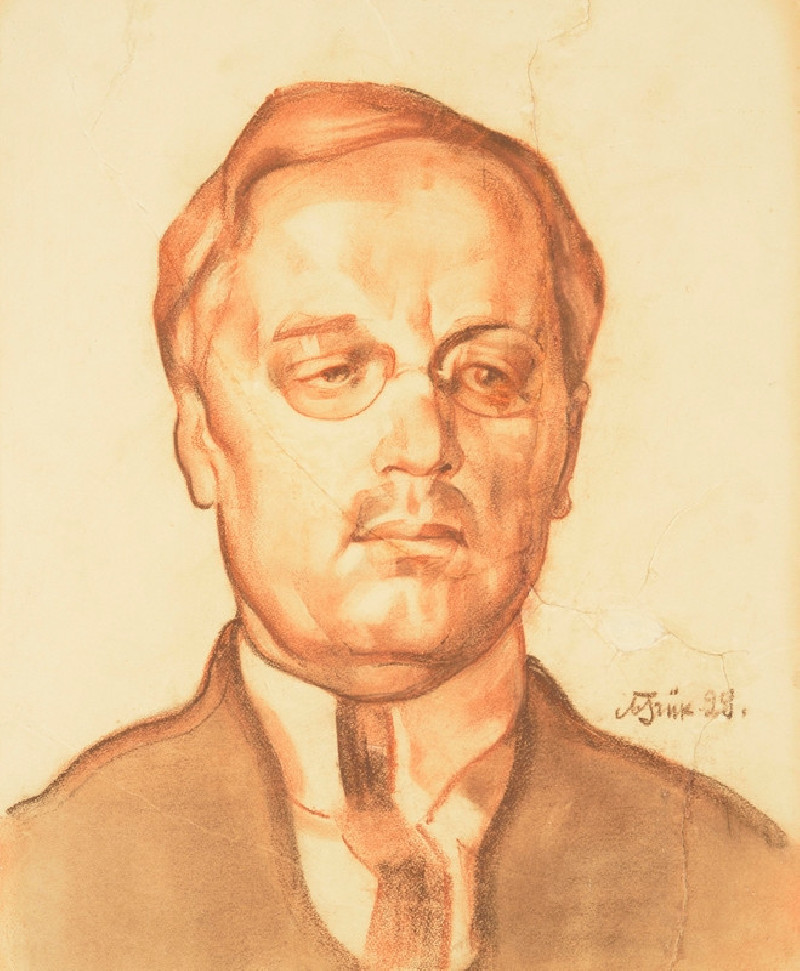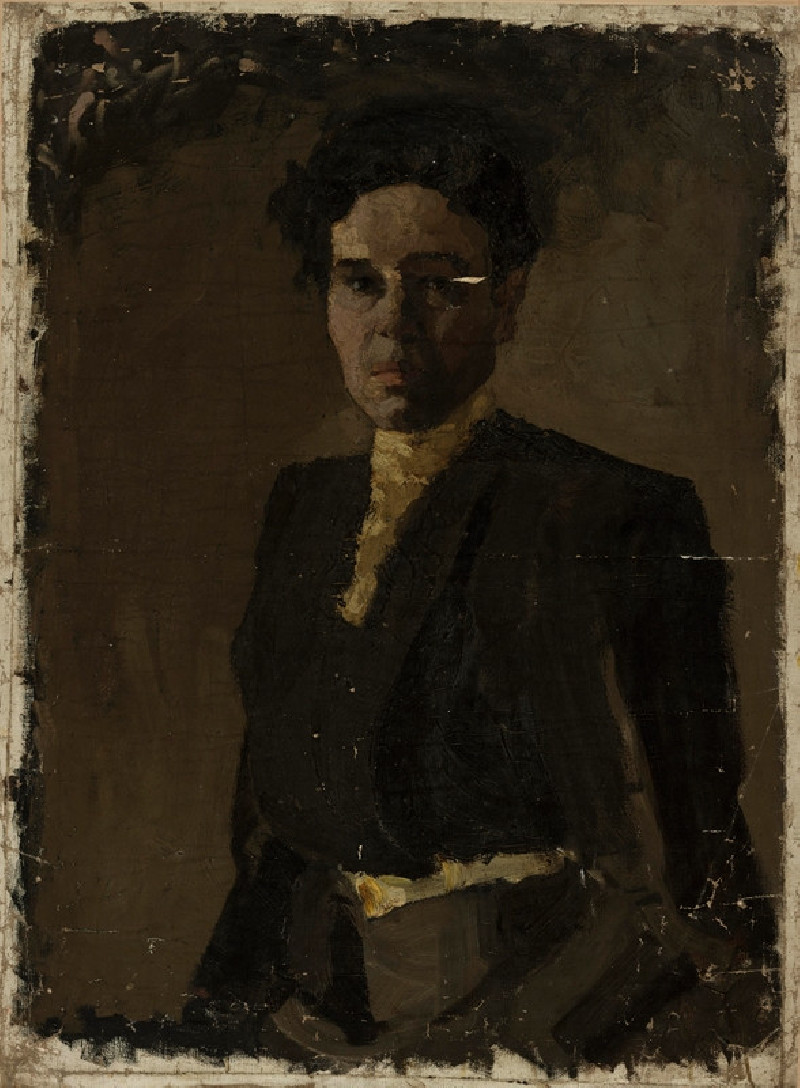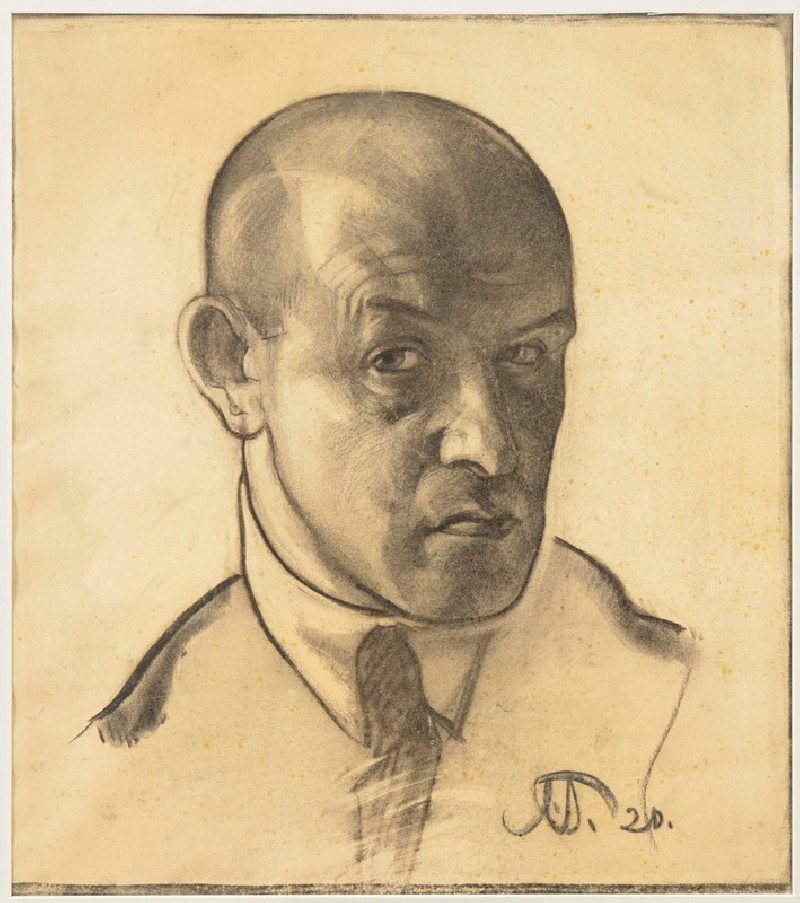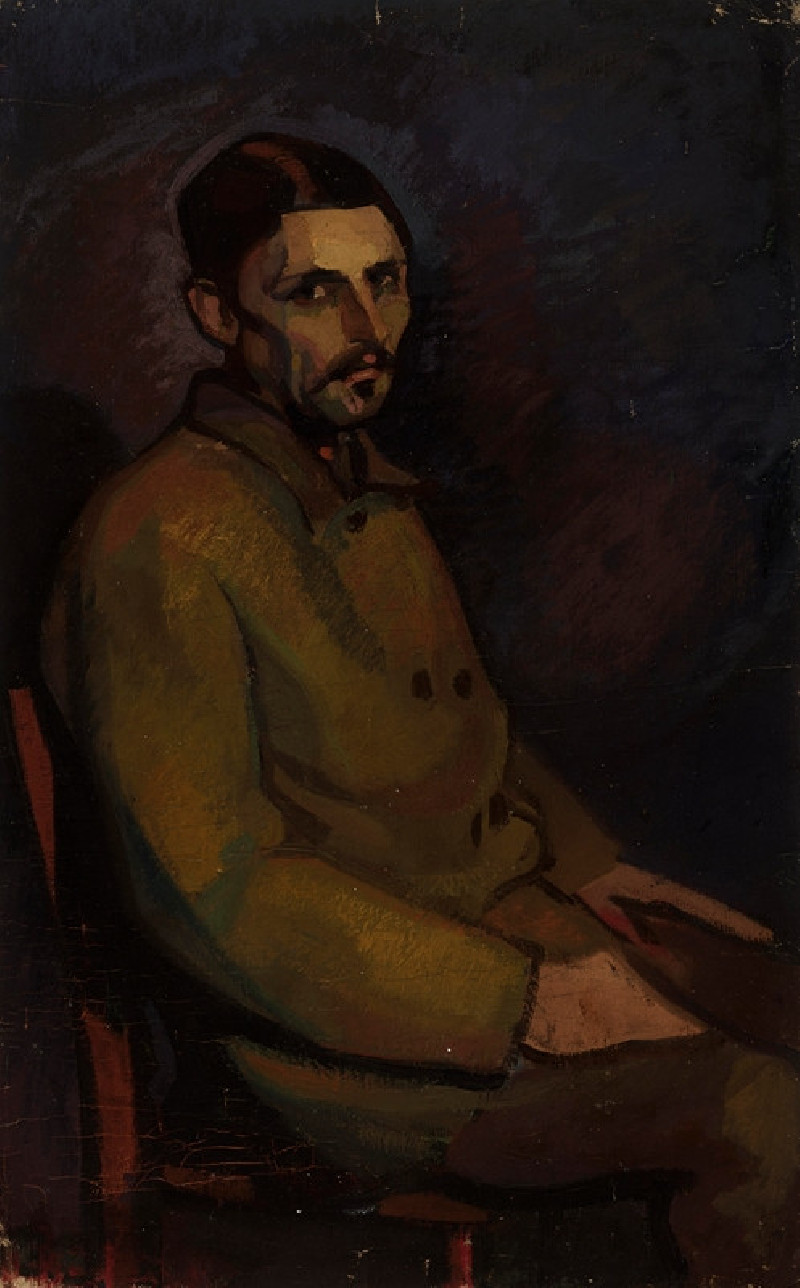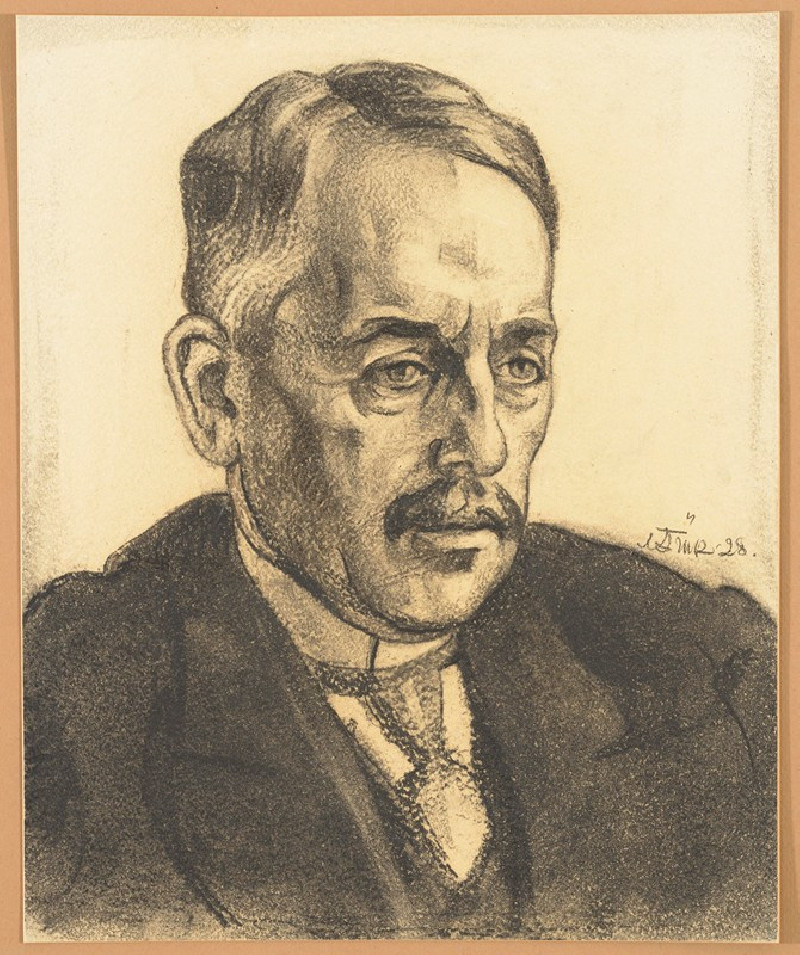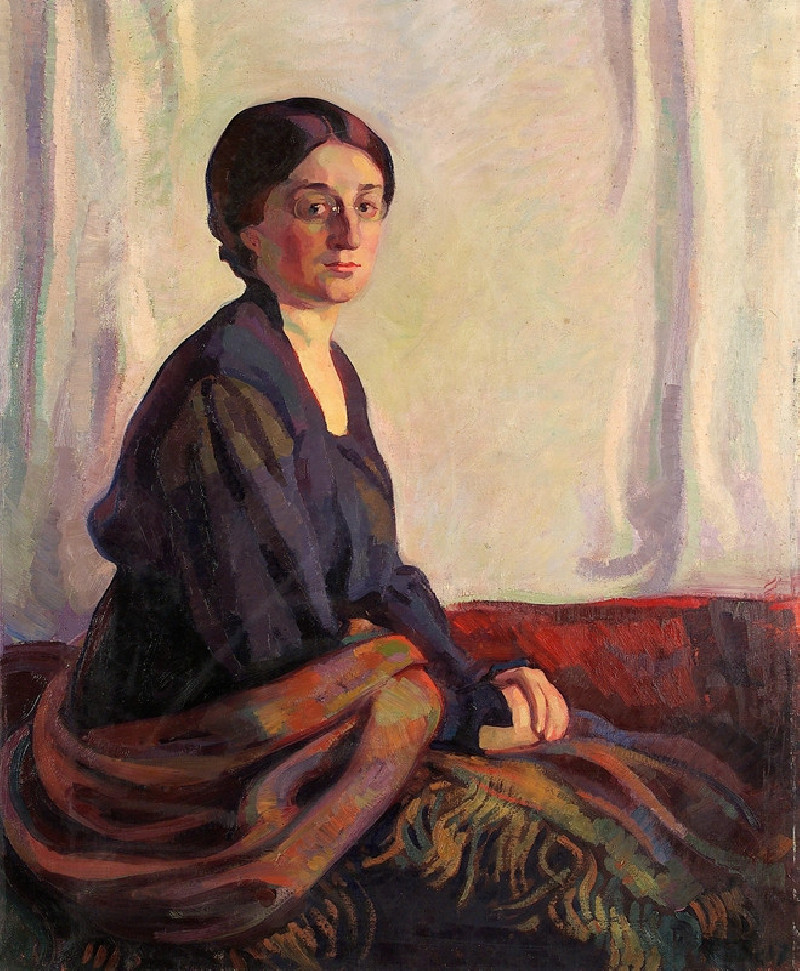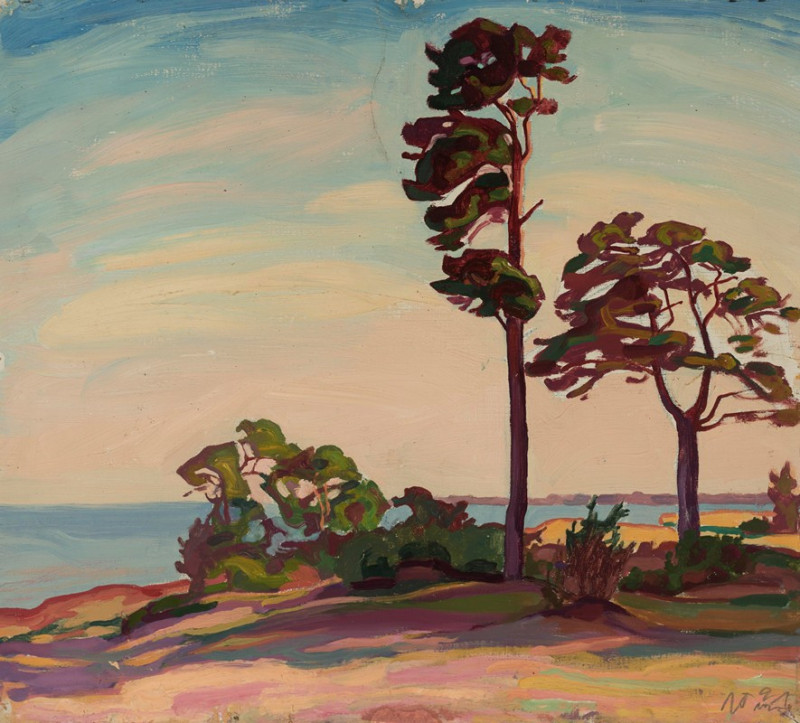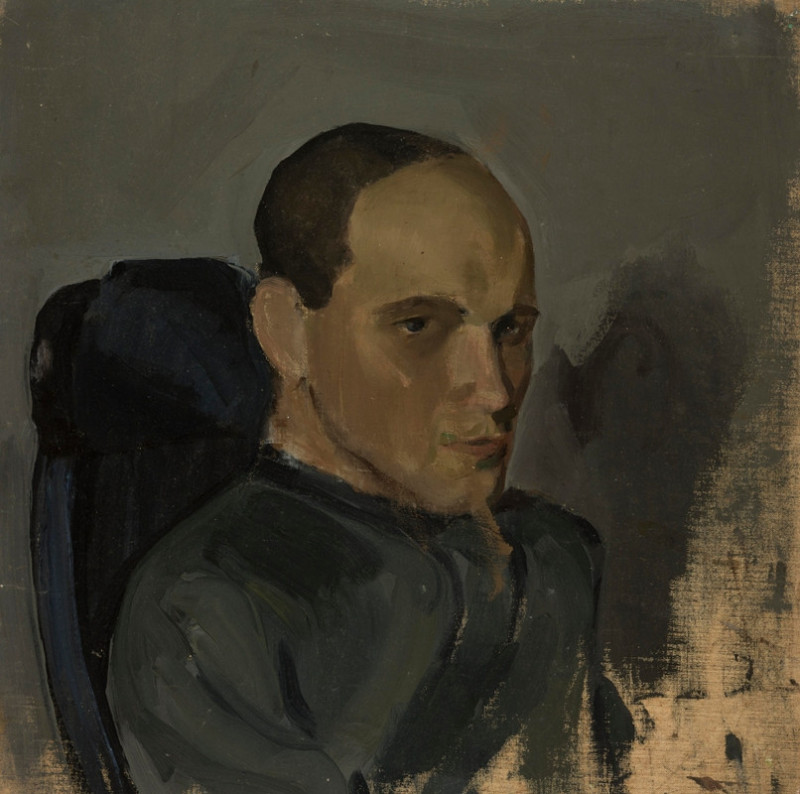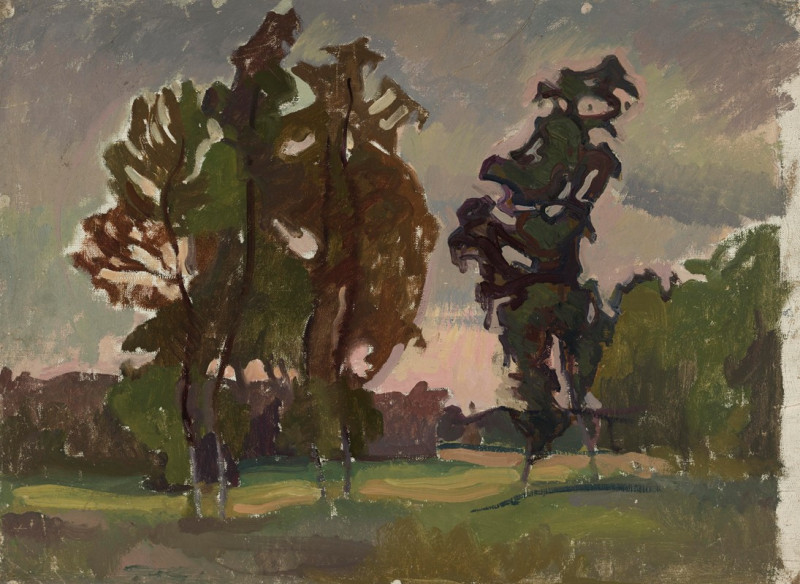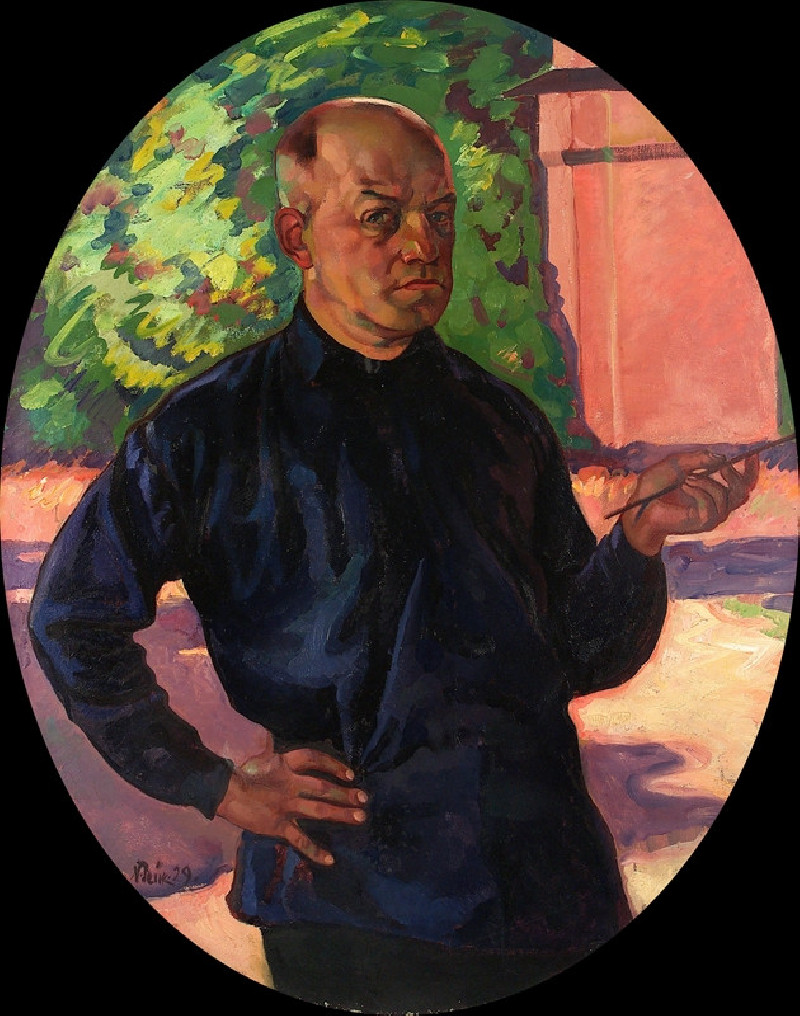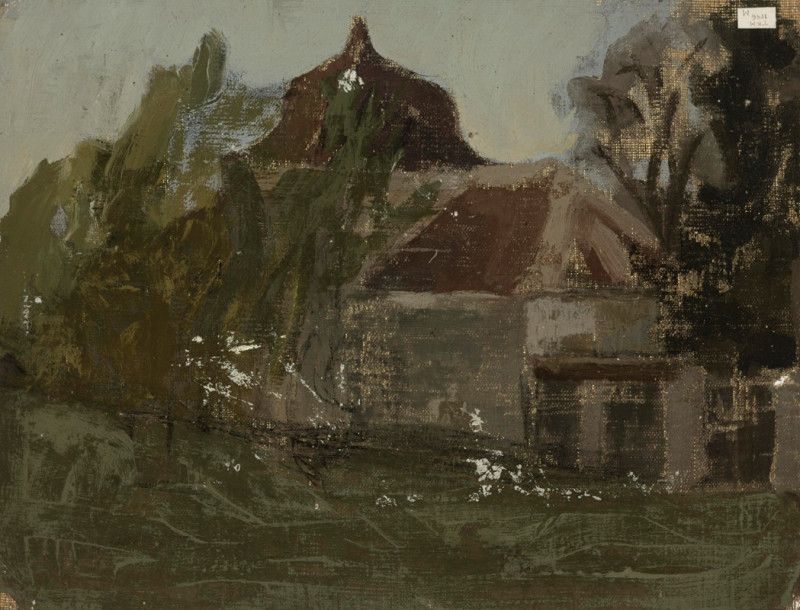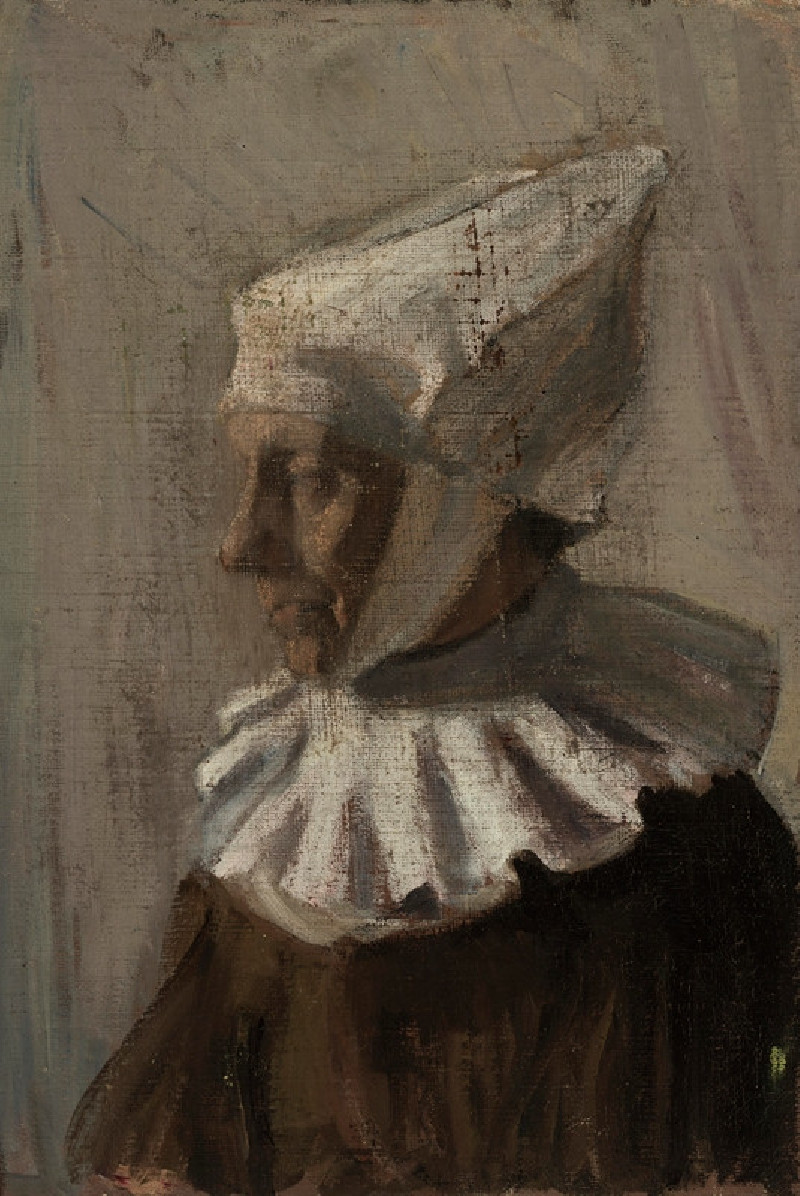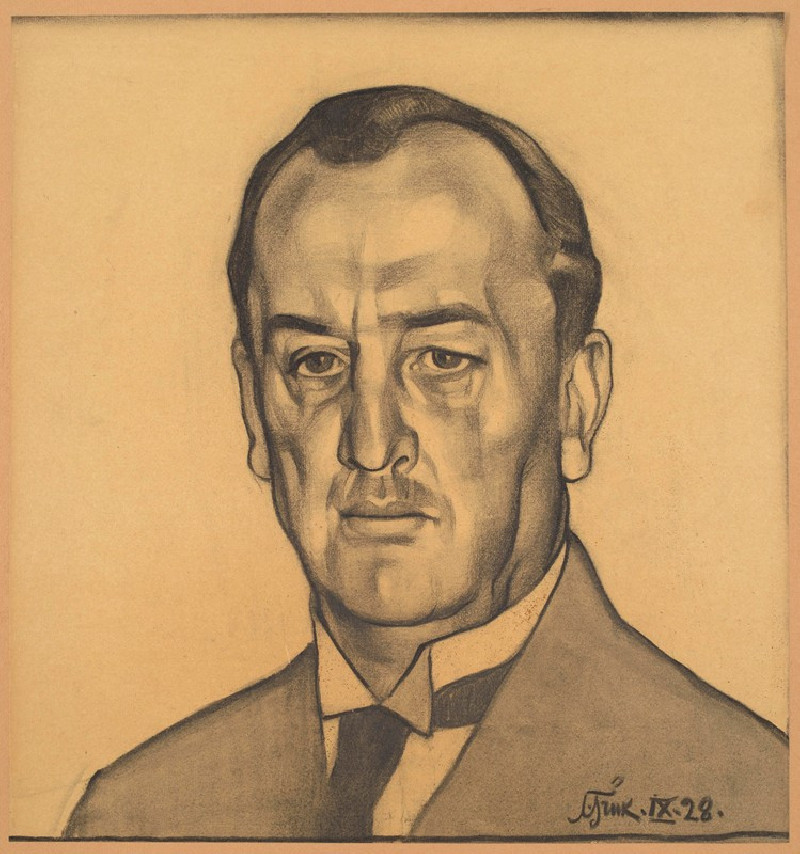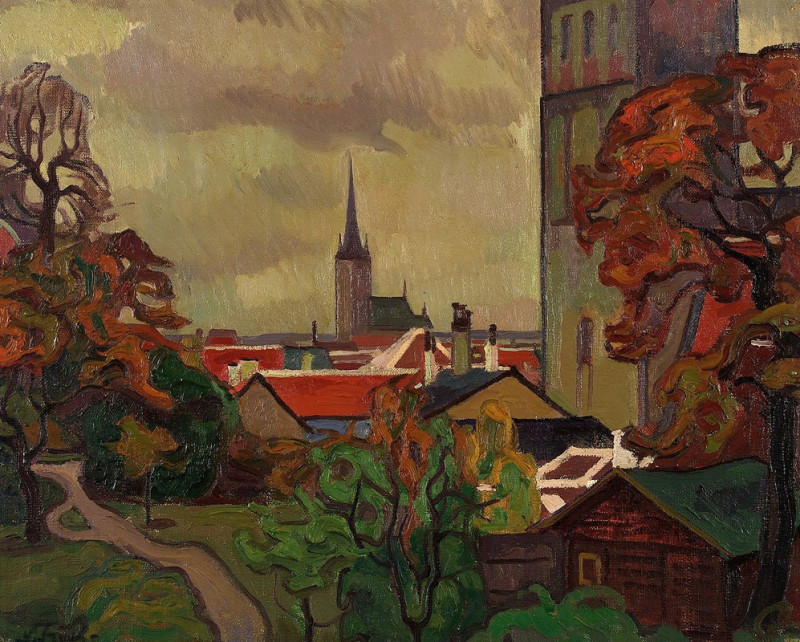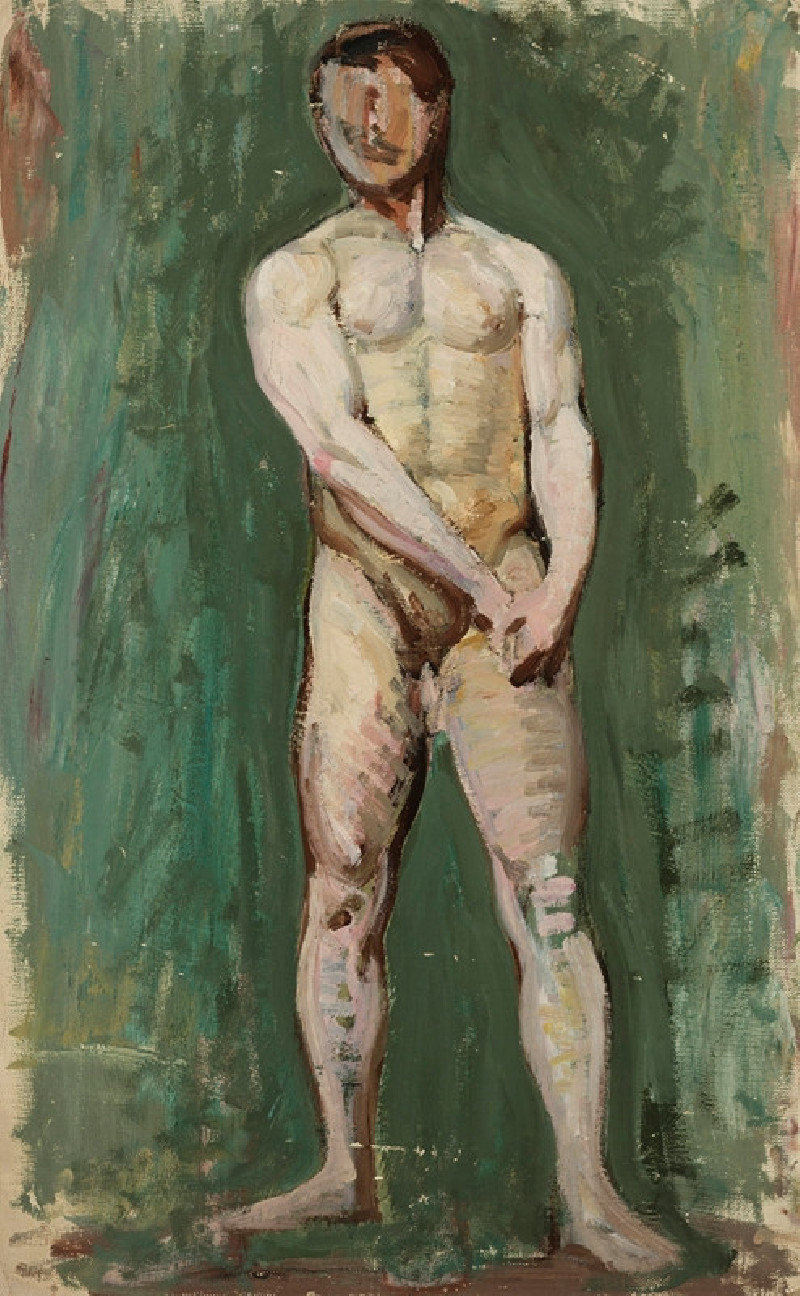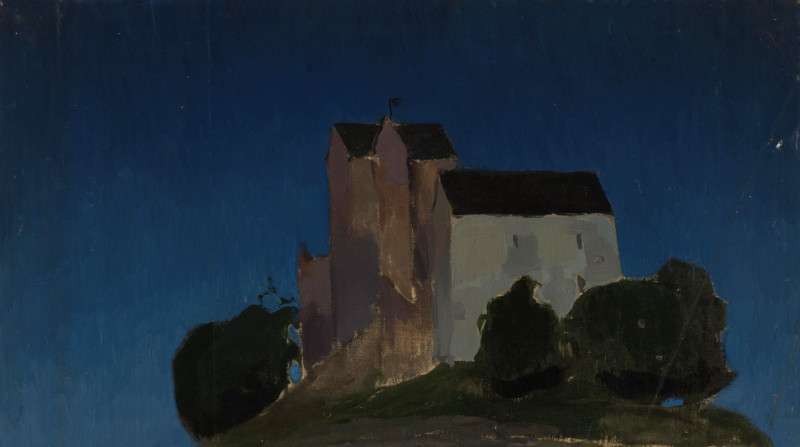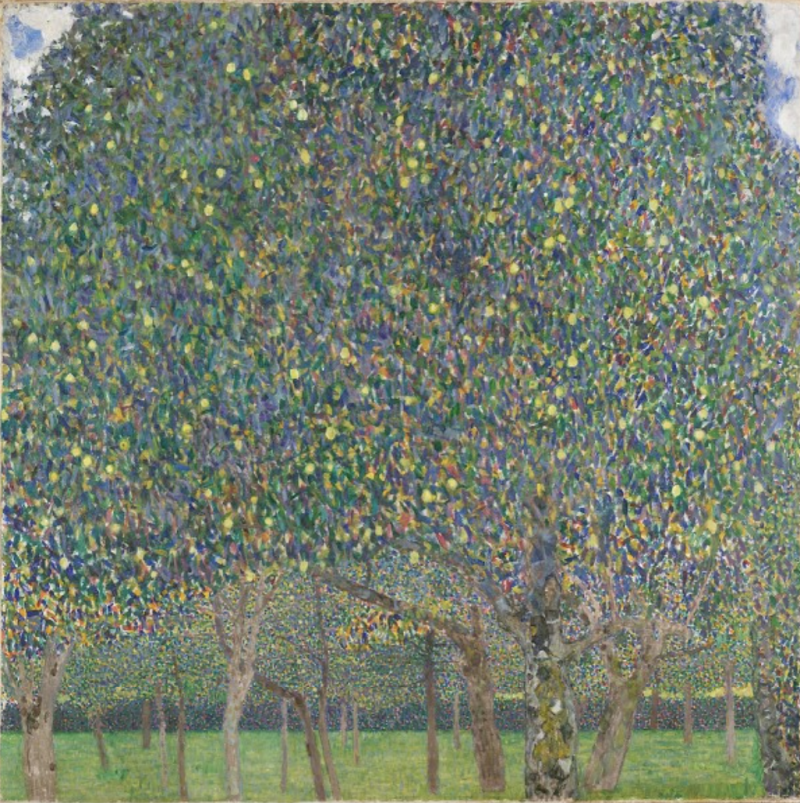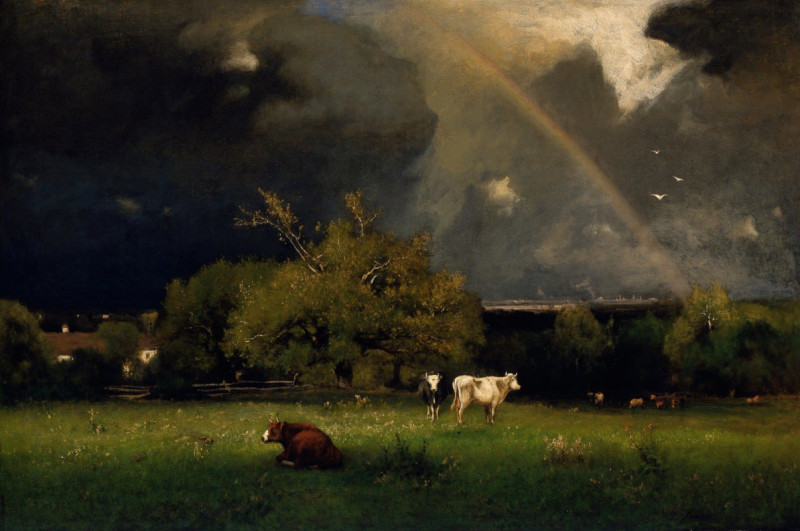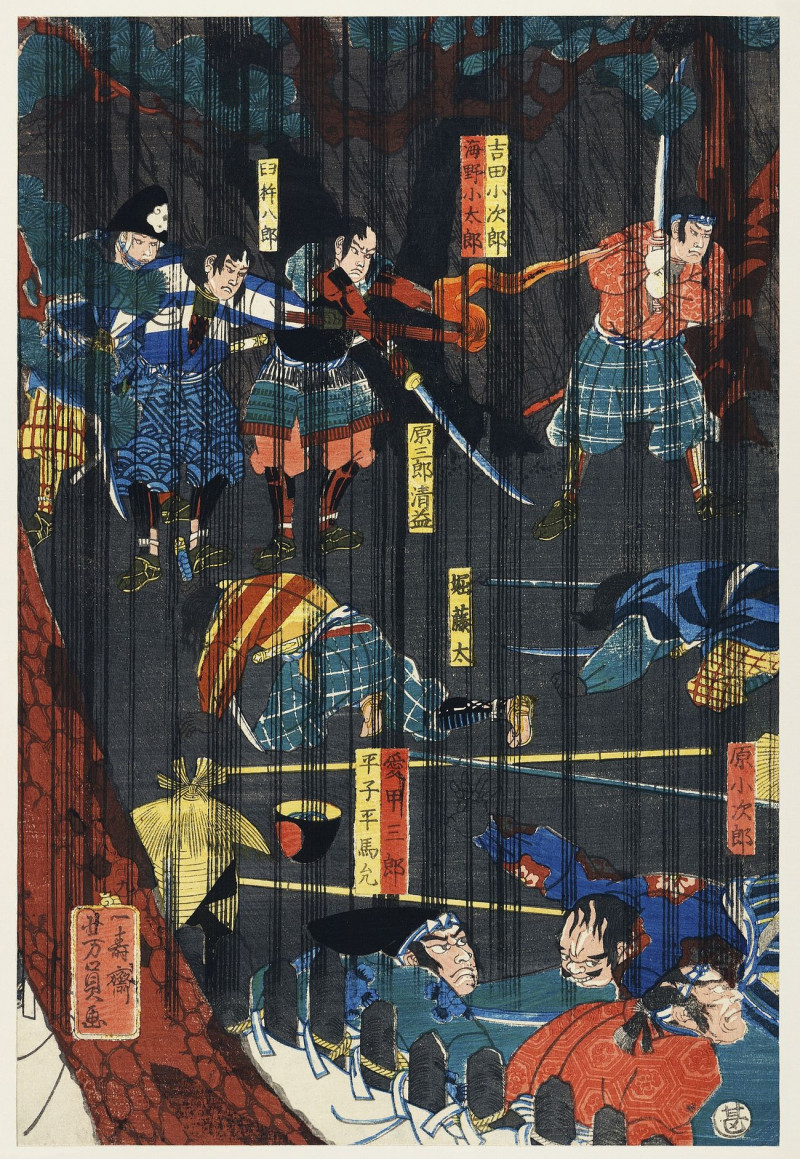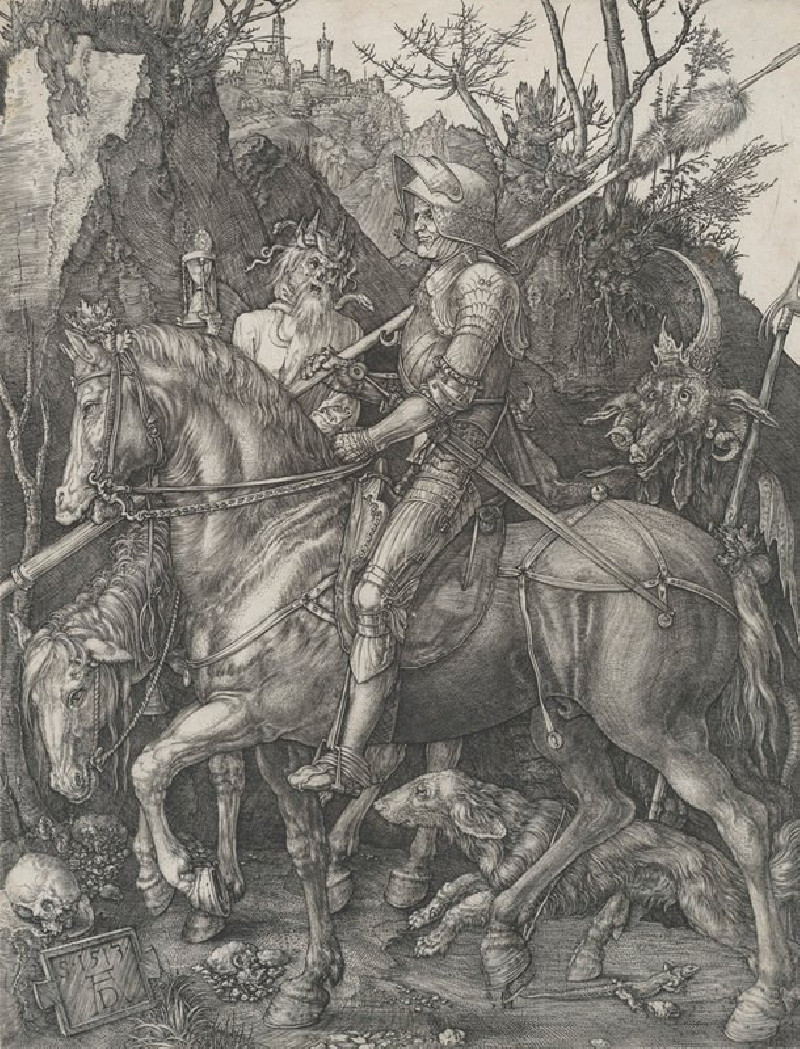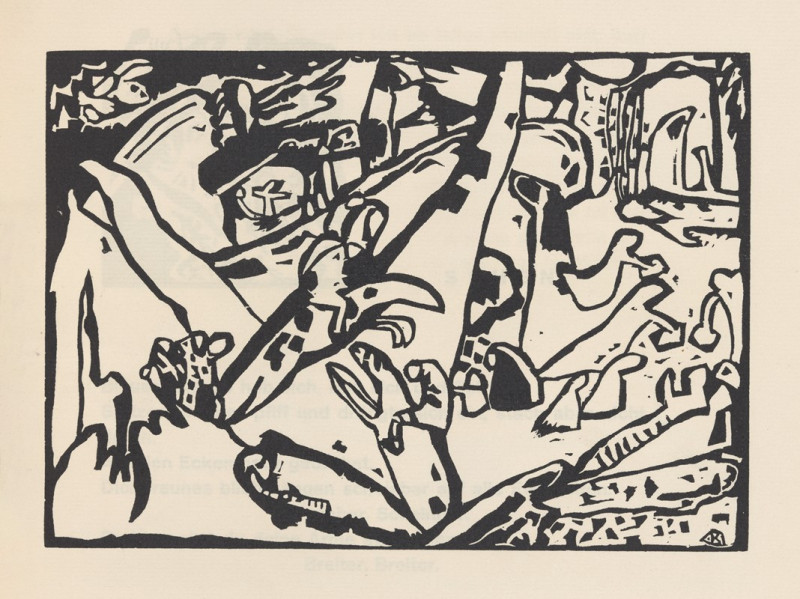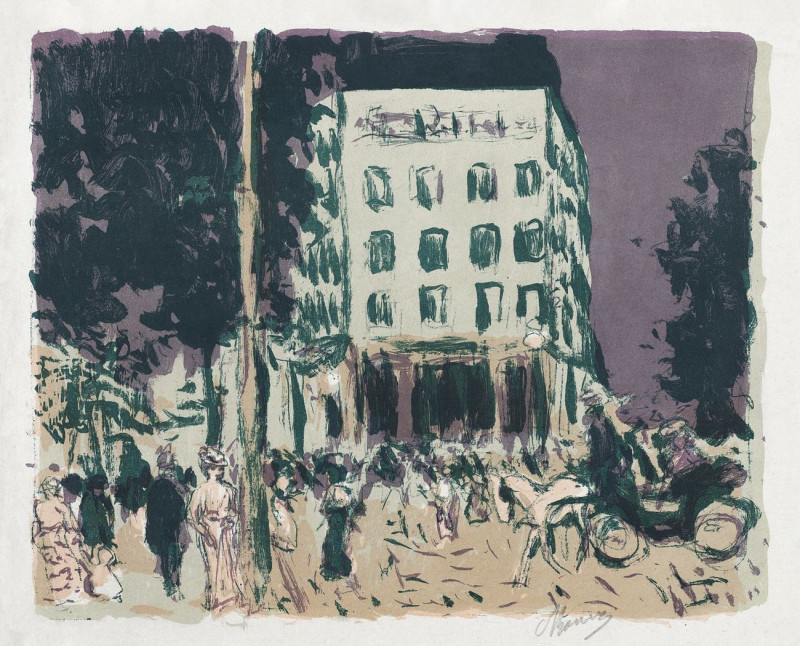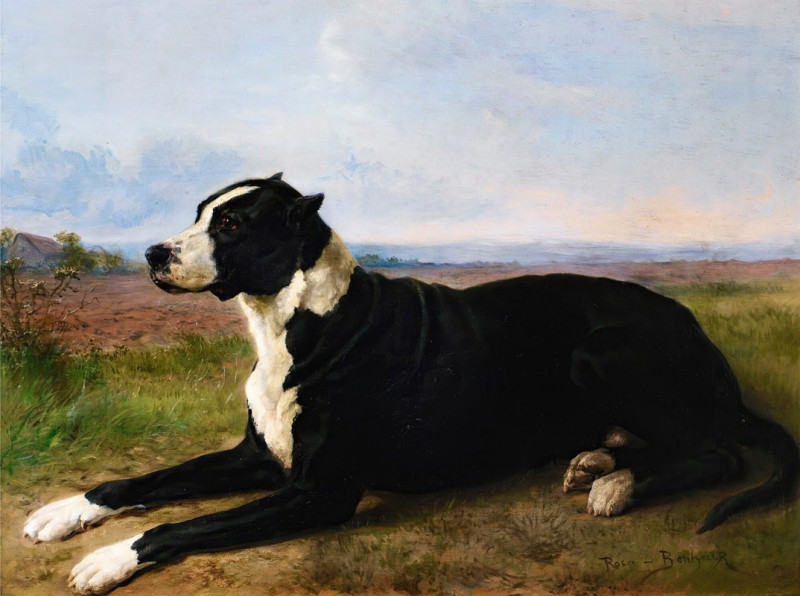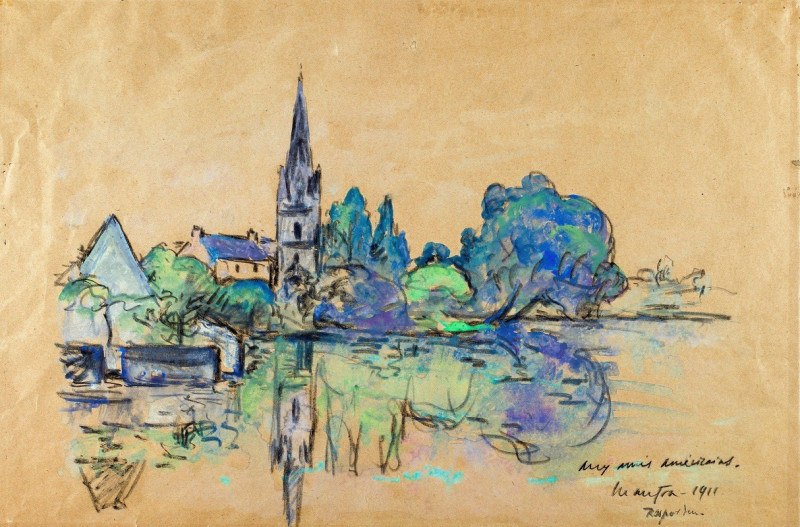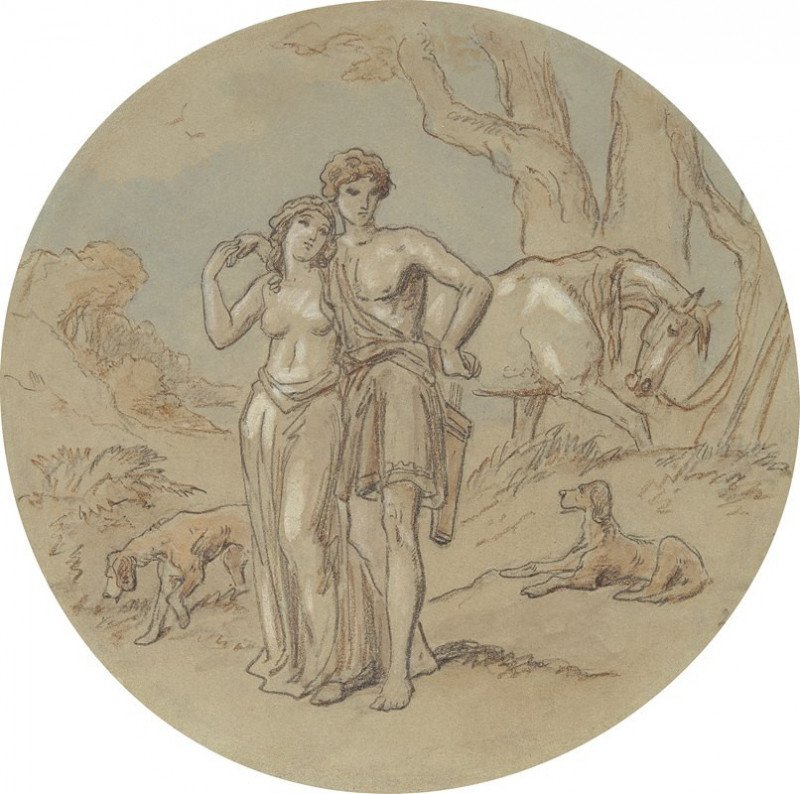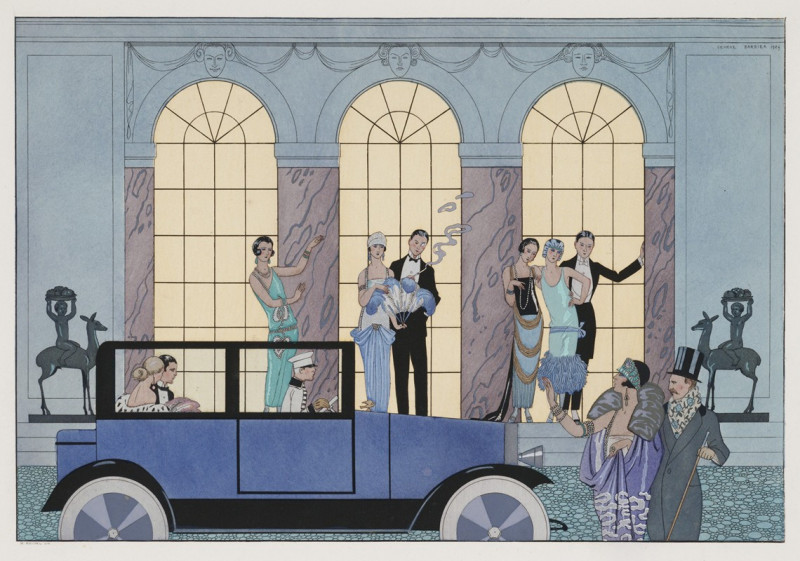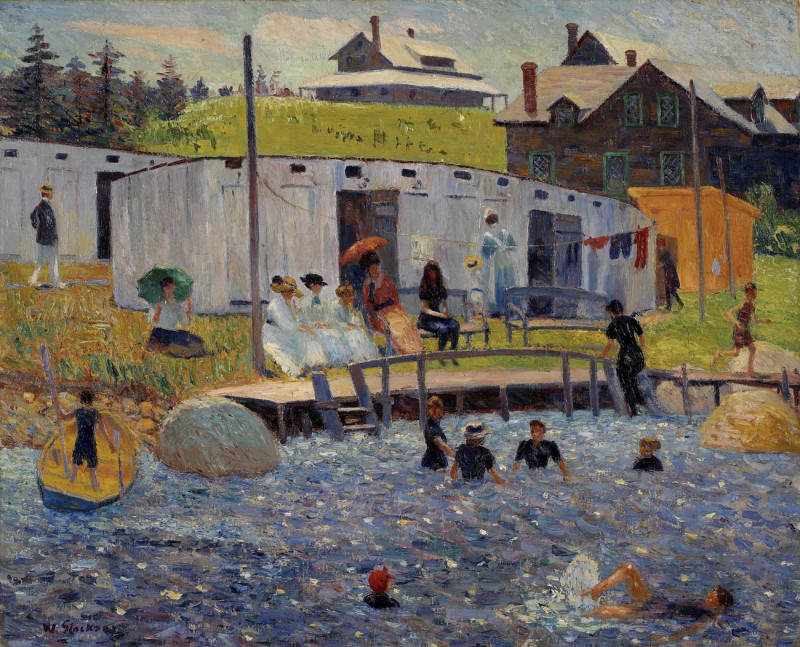Hugo Raudsepa portree (1932)
Technique: Giclée quality print
Recommended by our customers
More about this artwork
The artwork titled "Hugo Raudsepa portree" (1932) is a captivating portrait by the Estonian artist Nikolai Triik, masterfully rendered in pencil. This portrait portrays Hugo Raudsepp, a respected Estonian playwright known for his contributions to Estonian literature and drama.In this portrait, Triik captures Raudsepp with a direct and contemplative gaze which encourages a deep engagement from the viewer. The expression on Raudsepp's face is one of solemnity, showcasing a mix of intellectual depth and subtle intensity. The details in the facial features, such as the reflection in his round spectacles, the slight furrows in the forehead, and the meticulously rendered eyes, contribute to the lifelike appearance of the subject. Triik's use of shading adds a three-dimensional quality to the work, enhancing the contours of Raudsepp's face and suit jacket, thereby accentuating his distinguished demeanor.The portrait not only serves as a reflection of Raudsepp’s persona but also as a fine example of early 20th-century portraiture that prioritizes the inner life and character of its subjects.
Delivery
Returns
Nikolai Voldemar Triik was an Estonian Modernist painter, graphic artist, printmaker and professor. His work displays elements of Symbolism and Expressionism.
He came from a middle-class family. After graduating from the public schools in 1901, he enrolled at the Saint Petersburg Art and Industry Academy, but was expelled for participating in a student strike during the 1905 Revolution.

